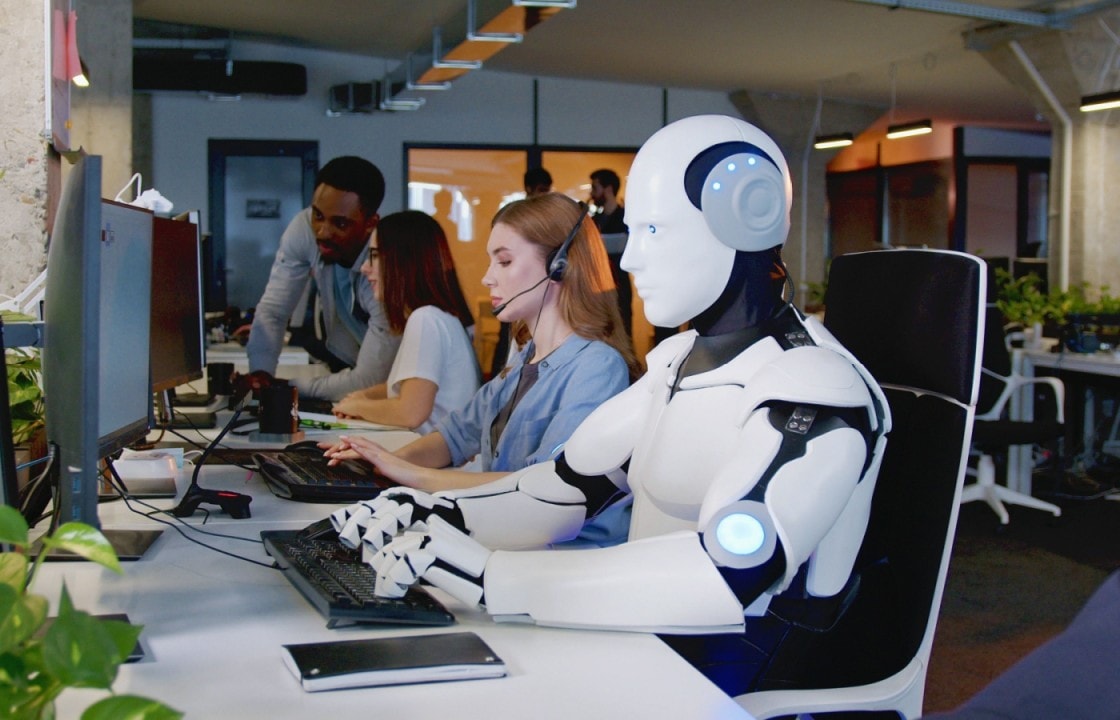Tech Jobs in 2025: A Bleak Picture
Tech recruitment experts say the job market in 2025 will not be any easier than it was in 2024. However, career doors are still wide open for those who know how to equip themselves with new skills.
For years, Silicon Valley was the promised land for skilled tech professionals, luring them with high salaries, relatively easy work, and luxuries like free meals and office recreation areas. But those days are over.
This is certainly not news, the US tech industry is set to cut hundreds of thousands of jobs between 2022 and 2023. Companies are claiming they over-hired during the pandemic and are now scaling back. They insist this is just a temporary phase.

But the reality today is less rosy. Layoffs continue, and even experienced tech professionals have to apply hundreds of times to get a job offer.
Additionally, the rise of generative artificial intelligence (Generative AI) is raising concerns about mass automation, especially in areas like software testing and software services, which could be easily replaced in the next few years.
But is this a sign of a real tech industry downturn? Or simply a turnaround? The data can be interpreted in a number of ways.
Some experts believe that technology recruitment is still going strong, it's just that the industry is entering a restructuring phase to adapt to the new era.
The tech industry is not dead, it is just changing and those who want to survive need to adapt to this wave of transformation.
The labor market is witnessing many rounds of downsizing and layoffs.
“The situation is really bleak,” admits Sam Wright, Director of Operations and Partnerships at Huntr, a company that helps job seekers in the tech industry.
Wright told Cybernews that since the beginning of 2025, he has been in contact with dozens of candidates and has seen a sharp decline in job openings while layoffs have increased.
“It’s not just entry-level roles that are being affected, but mid-level roles are also being affected. I’m talking to people who have had solid careers, who never had trouble finding a job before, but are now spending four to six months applying and only getting a few interviews out of hundreds of applications,” Wright said.
Meanwhile, Jeff Le, former Deputy Cabinet Secretary to former California Governor Jerry Brown, now Vice President of Public Policy and Global Government Relations at US cybersecurity company SecurityScorecard, said the current technology job market is “cruel”.

Photo: Internet.
“I was looking for a position in tech policy last year and saw a huge drop in jobs, probably 75% fewer than before,” Jeff Le added. “There were massive layoffs and layoffs, leaving the market flooded with talented people but not enough job opportunities.”
“I see almost no leadership positions being recruited. There are still a few opportunities for entry level, but the middle and upper level positions have decreased significantly,” Mr. Jeff Le emphasized.
The tech job market is tough right now. When Meta laid off about 3,000 employees in February, even those with “meet or exceed expectations” ratings were let go, according to The Washington Post. Some employees who had just returned from maternity leave were also included in the cut.
“Every team has a layoff quota. If there aren’t enough people with poor reviews, they simply adjust performance ratings downwards to justify the cuts,” one user shared on the anonymous social media app Blind for tech workers, calling Meta “the most ruthless tech company out there.”
Meta CEO Mark Zuckerberg previously said in a memo that the company wanted to raise performance standards and remove employees who did not meet expectations more quickly. However, the wave of layoffs did not only affect those who were truly underperforming.
Several former Meta employees are now speaking out in their defense on the recruiting platform LinkedIn, publicly pushing back against unfair reviews from their former employer and criticizing how Meta misrepresented their contributions.
Workers need to continuously improve their professional skills.
Billionaire Elon Musk dramatically cut about 80% of the company's workforce just weeks after the acquisition of Twitter (now X), and it seems Mark Zuckerberg is moving in the same direction.
But what’s more concerning is that many of these jobs won’t be replaced by humans. AI isn’t a distant concern anymore, it’s evolving at a pace that’s outpacing human workers’ ability to adapt.
Some jobs, particularly in entry-level IT services and data center operations, are being automated and may never come back.
In addition, an article published in The Wall Street Journal (USA) in March 2024 showed a worrying reality: recently laid-off technology employees are having difficulty finding new jobs.
The reason is not only because of fierce competition but also because of the gap between the skills they have, the salary they expect and what employers actually need.
Companies are coming to a clear conclusion, either they can replace humans with automation systems at a cheaper cost, or they need to hire people who can operate and manage these AI tools.
This raises the urgent question of upskilling, reskilling and cross-skilling as important factors for workers to survive in the new job market.

According to the Harvard Business Review, the lifespan of today’s technology skills is only about 2.5 years before they become obsolete. However, retraining is not simple or quick.
“I haven’t seen many reskilling or upskilling programs that are really effective, except for companies trying to control personnel costs and focusing more on finding employees with good management skills,” Jeff Le commented.
Sam Wright agrees that there is a serious shortage of retraining programs. He sees many employers struggling to find suitable candidates, despite record numbers of applications.
“I’ve heard stories of hiring managers struggling with hundreds of applications and still not finding the right candidate. Simply because the skill requirements have changed so rapidly,” Wright told Cybernews.
A recent report from US technology talent development company Revature found that more than 80% of IT hiring decision makers are worried about not being able to find enough talent to meet growing demand.
AI and machine learning are two key areas they expect to fill, largely through retraining existing staff rather than new hires.
In fact, consulting firm Korn Ferry has predicted that by 2030, skills shortages could leave 85 million technology-related positions unfilled globally.
In January this year, the unemployment rate in the IT industry jumped to 2.9%, a sharp increase from 2% the previous month, a signal that the industry's labor market is still under great pressure.
Is this an opportunity?
From another perspective, upskilling or reskilling current employees may be the most effective and least costly option for businesses.
This also reflects the reality that today's technology industry is becoming more complex than ever, requiring constant adaptation from both businesses and workers.
The reality is that the tech industry is becoming more cautious in hiring, but that doesn't mean opportunities have completely disappeared.
John Hurley, Chief Revenue Officer at Optiv – a US cybersecurity company, told Cybernews that this is “an exciting and opportunistic time to be in the technology sector”. For him, AI and automation are not a threat, but rather a productivity tool that helps people make better decisions.
“Those who adapt and transform will find that AI does not take their jobs, but instead enhances and expands their ability to do so. Technology, in any form, never stands still, it evolves through innovation. And as AI advances, so must we,” said John Hurley.
Dr. Kyle Elliott, a career coach and mental health expert, shares a similar view. He believes AI may replace some jobs, but it will also create a whole new set of positions that never existed before.

“You can’t expect employers to prepare all your skills for you. If you want to maintain your advantage in the labor market, you have to actively learn and upgrade yourself, instead of just relying on what you already know,” Kyle Elliott added.
Meanwhile, Jason Wingate, CEO of Emerald Ocean, an IT consulting firm in Canada, stressed that volatility has always been a part of the technology industry.
He gives the example of ATMs, which in the 1970s were feared to be a threat to bank tellers. In fact, some jobs were lost, but ATMs allowed banks to open more branches at lower costs, creating new jobs.
“Personal computers in the 80s, e-commerce in the late 90s, mobile apps, cloud computing, all of these were seen as threats to jobs. But the reality is, they not only created new opportunities, they also boosted the economy,” said Jason Wingate.
Clearly, AI and automation are not the end of the technology industry, but rather a major change, and those who adapt, learn, and grow will always have a strong foothold in the future.
Where the problem arisesnew,there is work there
According to the World Economic Forum's Future of Jobs 2025 Report, around 92 million jobs could disappear by 2030. But at the same time, 170 million new jobs will be created, resulting in a net increase of 78 million positions.
However, this does not mean that all these new jobs are high quality. Many people worry that technology may outstrip human adaptability, not only in the tech industry but across the economy.
“Every day we are reminded of the superiority of computers,” wrote the technology thinker Nicholas Carr more than a decade ago. “What we forget is that it was humans who created them. If machines can amaze us, it is because we have given them the power to do so.”

Daniele Viappiani, an economist who has advised on AI policy for the UK and Argentina, believes that AI will not destroy jobs, but on the contrary, will promote the emergence of many new professions.
According to Daniele Viappiani, one of the most important principles of economics is that there is no fixed number of jobs in the economy. It is a misconception that the economy has a finite number of jobs. In fact, as demand changes, new jobs will appear.
“Who could have imagined jobs like social media management or user experience design before? If we have new problems, we have new jobs. The labor market is always adjusting to solve new problems. And because we will never run out of new problems, we will never run out of jobs,” he asks.
What we are witnessing is not a collapse of the tech job market, but a restructuring to fit the new reality. This transformation will not happen overnight, and both businesses and society will have time to adapt.
“If AI is truly a core technology that can change everything, then we should be prepared for a wave of new opportunities, with job roles that don’t even exist today. But nothing happens automatically. Success will depend on human creativity, entrepreneurship and sometimes wise policies,” said Daniele Viappiani.
This means that instead of being afraid, we need to focus on adapting, learning and innovating to ride the wave of technology, rather than being swept away by it.
